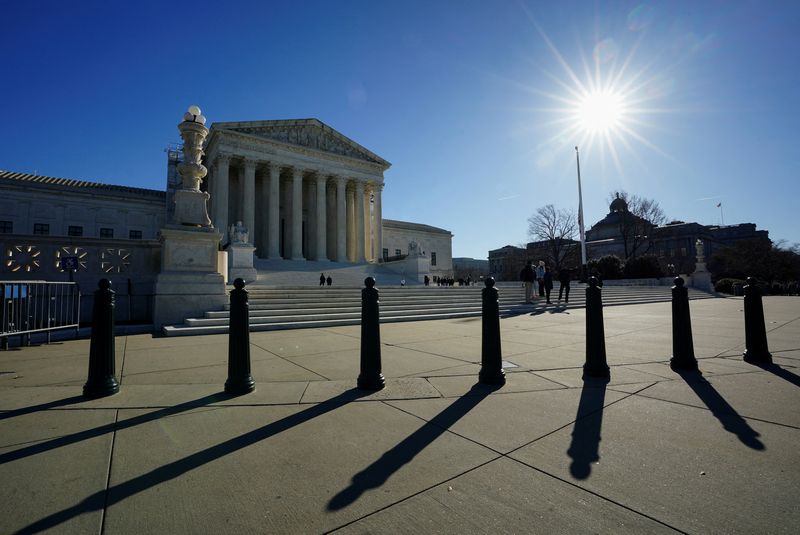By Daniel Wiessner
(Reuters) -The U.S. Supreme Court on Friday paved the way for more truck drivers and other transportation workers to file employment-related lawsuits in court rather than private arbitration, ruling that an exemption from arbitration extends to workers outside of the transportation industry.
The justices, in a 9-0 ruling, threw out a lower court's dismissal of proposed class action litigation by Neal Bissonnette, a delivery driver for LePage Bakeries Park Street, a unit of Wonder Bread maker Flowers Foods (NYSE:FLO). Bissonnette has said Flowers Foods deprives drivers of wages by treating them as independent contractors rather than employees.
The ruling faulted a 2022 decision by the New York-based 2nd U.S. Circuit Court of Appeals that the exemption from arbitration for transportation workers involved in interstate commerce did not apply to LePage's case because the company's customers were purchasing bread and not transportation services.
"A transportation worker need not work in the transportation industry to fall within the exemption," conservative Chief Justice John Roberts wrote for the court.
The justices directed the lower court to decide whether drivers for LePage are otherwise eligible for the exemption.
The ruling is a blow to companies like Amazon (NASDAQ:AMZN), Walmart (NYSE:WMT) and many other retailers and manufacturers that employ large numbers of drivers but do not sell transportation services. The decision could mean that companies will face more class action lawsuits on behalf of large of groups of workers in court, which can be far more costly than individual claims brought in arbitration.
The Supreme Court is currently considering whether to take up Amazon's appeal of a lower court's ruling that said the e-commerce giant's drivers who make local deliveries are exempt from arbitration because they deliver packages that came from other states.
In Friday's case, Amazon and several major U.S. business groups had told the Supreme Court in briefs that a ruling against LePage would lead to uncertainty over when the arbitration exemption applies and an increase in employment-related litigation.
The justices on Friday rejected those concerns, saying that the Supreme Court's prior decisions on the scope of the exemption have made clear that it applies to a specific class of workers who are actively involved in moving goods across state lines.
"These requirements undermine any attempt to give the provision a sweeping, open-ended construction," Roberts wrote for the court.
Many companies require workers to sign arbitration agreements and claim individual arbitration is quicker and more efficient than resolving disputes in court. Critics of the practice have said it prevents companies from being held accountable for legal violations that affect large numbers of workers.

The Federal Arbitration Act (FAA), dating to 1925, requires arbitration agreements to be enforced according to their terms but exempts employment contracts "of seamen, railroad employees, and any other class of workers engaged in foreign or interstate commerce."
The Supreme Court in a 2001 ruling said the exemption applied only to transportation workers. Since then, appeals courts have split over whether that means any worker who transports goods or only those employed by companies that provide transportation services.